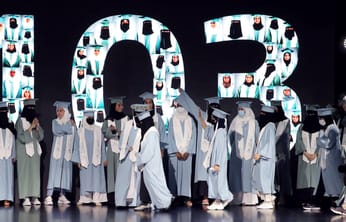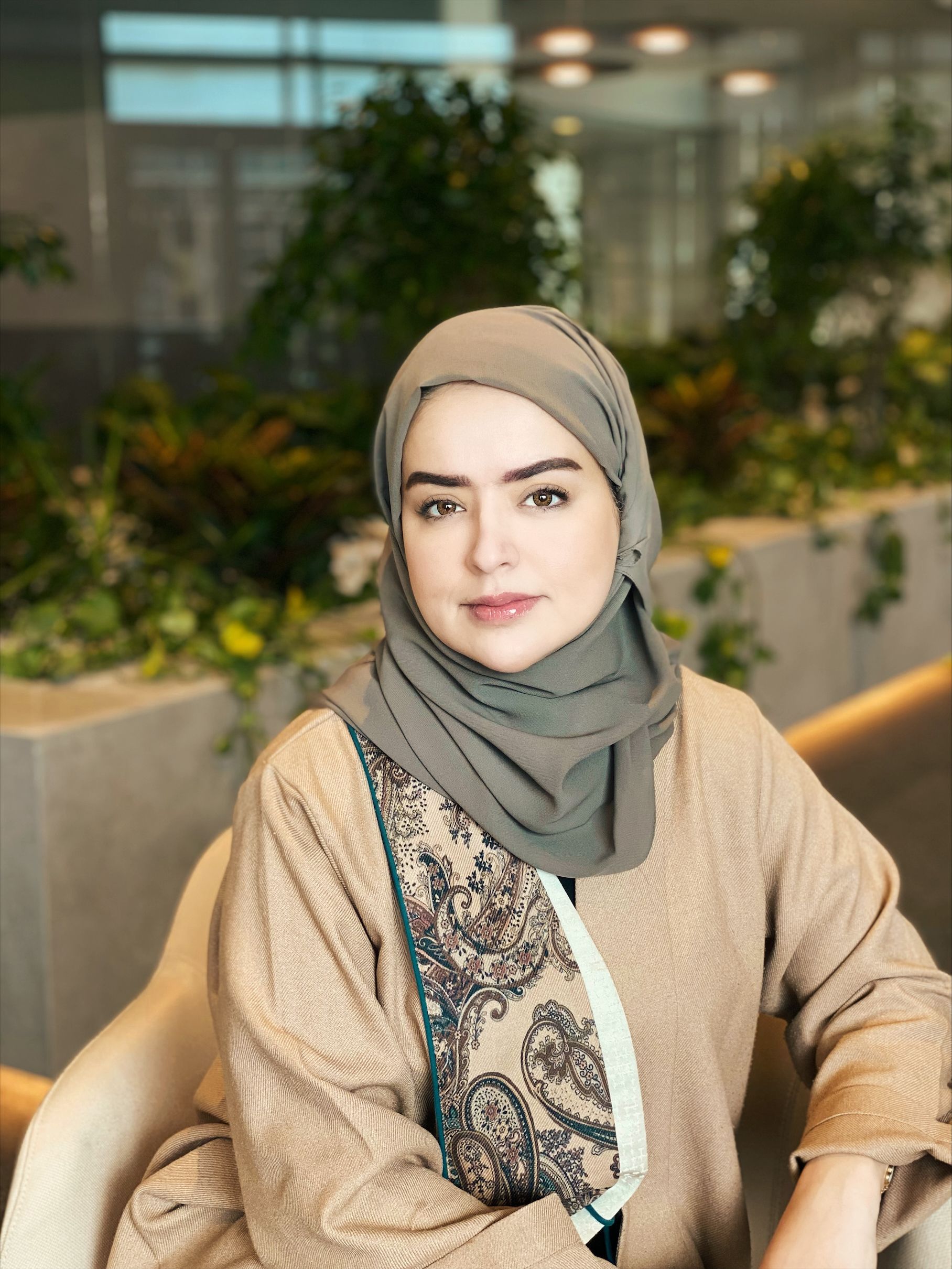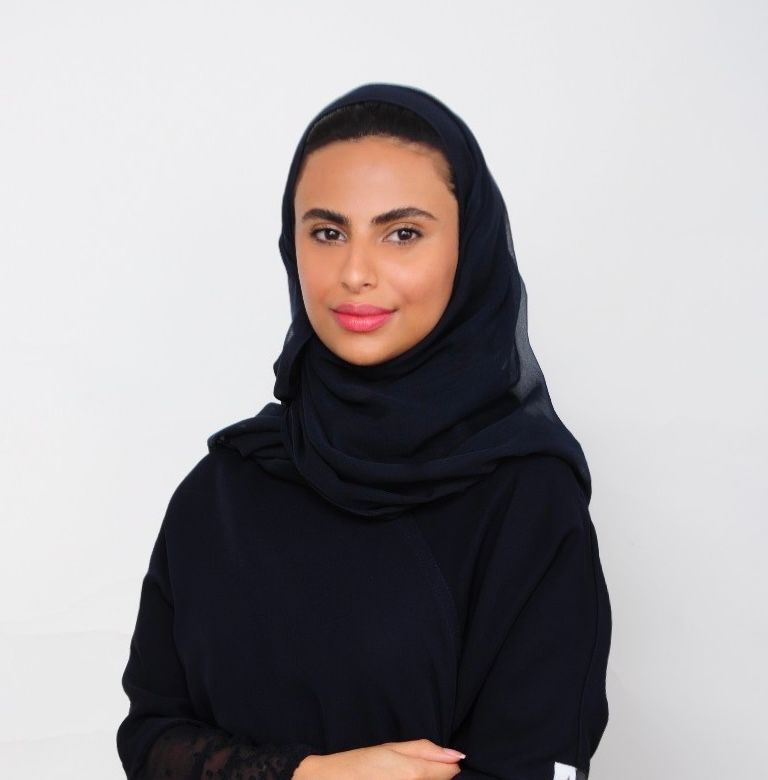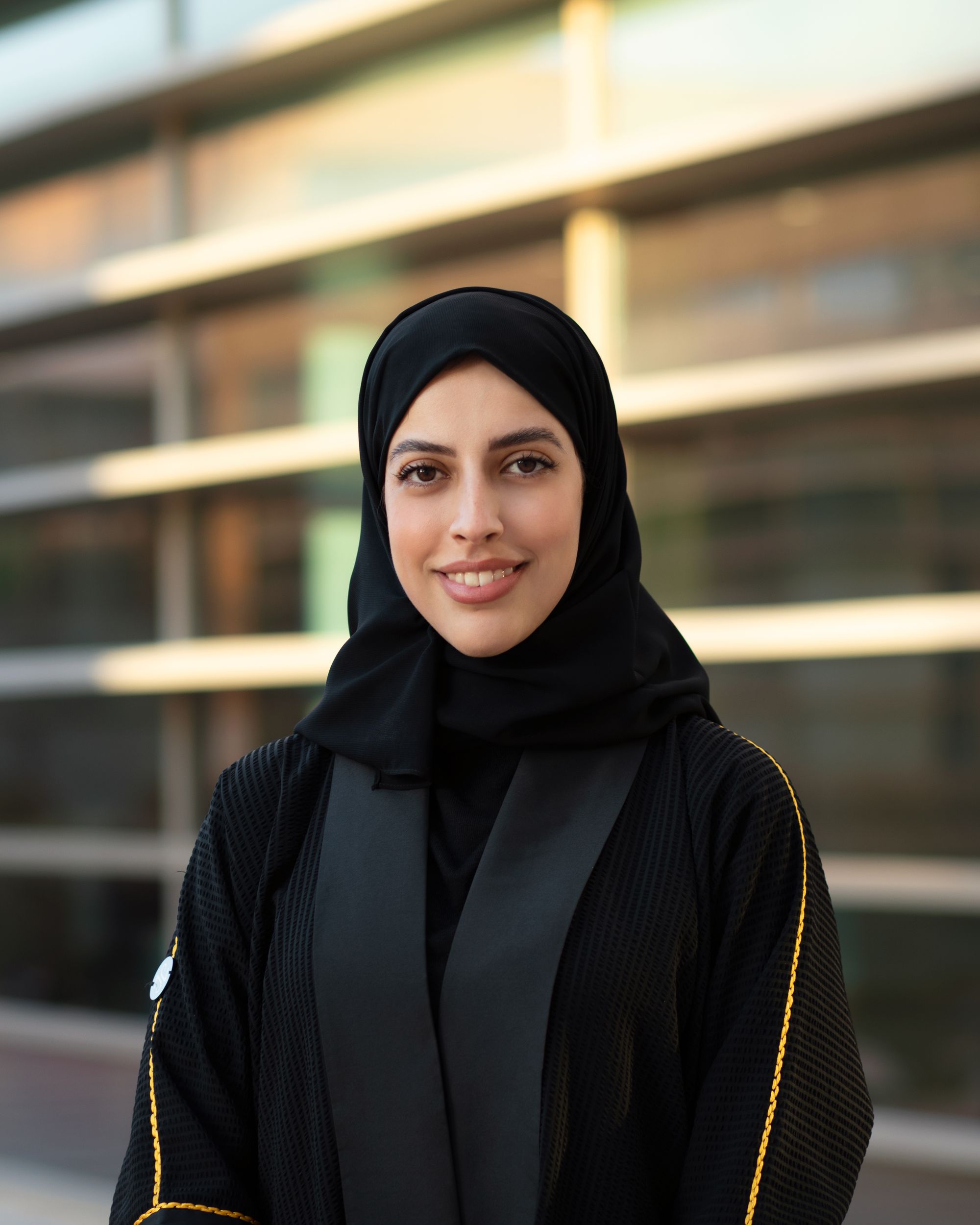
Leading The Charge
With education, mentorship, collaborations, and more, here’s how Saudi Arabia is attempting to close the gender gap in AI

Saudi Arabia is building up a workforce that can shape the future of tech- and the country’s women are making sure they are a significant part of it.
When it comes to growing tech talent in Saudi Arabia, Mansoor Syed, Program Director, AstroLabs Saudi Arabia, confirms that the Kingdom has been demonstrating nothing but unprecedented support to developing the future-forward skills of its people. “What we have seen, and continue to see, is a workforce that is constantly looking to upskill itself, and become better than they were the day before,” Syed says. “The Kingdom, due to its unprecedented rate of growth and investment, has created plenty of opportunities for its citizens to thrive. The onus now must be on the citizens to avail the opportunities that are being presented to them, and challenge themselves to keep up with their country’s ambitions.”
To better explain how Saudi Arabia’s citizens are seizing the opportunities they are presented with on a day-to-day basis, Syed shares two examples that he has personally been a witness to. “While directing a culture-altering program for one of the leading corporate financial institutions, not only in the Kingdom but in the region, we designed an employee engagement-led educational program,” he says. “The correct approach was, firstly, to create a safe space equipped with the correct resources for the growth of the young talent, and secondly, to ensure that strategic investments were made to secure the sustainability of the talent within a corporate organization. When talent is properly engaged, incentivized, and given purpose, the real grit of Saudi Arabia’s emerging workforce starts taking center stage. Surely, this also translates to a more diverse set of skills and personalities. The other example is that, when directing Game Changers, the gaming accelerator program initiated by the Saudi Arabia Ministry of Communications and Information Technology (MCIT) and the Saudi Esports Federation, we took a curriculum-based approach, whereas we had a cohort and a clear six-month-long curriculum. Amongst our many accomplishments, one that I am particularly fond of was that 60% of our technical CEOs in the cohort were women.”

The fact that woman are playing an integral role in the tech landscape of Saudi Arabia might come as a surprise to many- but the evidence for these are plenty to see. When opening the first women-only developer academy in Riyadh, Saudi Arabia, American multinational Apple -along with its partners in the Kingdom, Saudi Federation for Cyber Security, Programming, and Drones, Tuwaiq Academy, and Princess Nourah Bint Abdul Rahman University- expected that many entrepreneurs, developers, and designers would want to take part in the developing iOS app economy in Saudi Arabia. But even so, Ohood Mohammed Alnayel, Academy Director of Saudi Arabia’s Apple Developer Academy, says that receiving 55,000 applications for the two cohorts the institution has had since its launch in February 2022 surpassed their expectations. “We call our students learners, because we believe that everyone learns, and that learning does not end at a certain age,” Alnayel says. “Out of 55,000 applications, we accepted 103 learners for our first cohort which ended in July 2022, and for the second cohort, from October 2022 to June 2023, we have 190 students. Because we had a huge number of applications, we did not want to rely only on tests and grades, but to ask deeper questions and understand who each individual really is.”
With this explanation, Alnayel captures the essence of the vision of the Apple Developer Academy in Riyadh- to create a community of developers and designers who will use technology to fulfill the needs and seize opportunities within their local communities. “We are looking for not only technical experience, but for the right mindset,” Alnayel says. “We are looking for female thought provokers and leaders who really want to push the status quo.” The Academy currently offers two courses: there’s the four-week Apple Foundation Program designed for learners curious about what it means to be a developer, as well as the Apple Developer Academy, a nine-month program to learn coding, design fundamentals, app business, artificial intelligence, marketing, and professional skills. To date, the Academy has had learners from eight nationalities, of ages between 18 to 49, and 30% of them did not have an IT background. “Having a diversity of age allows you to bring in people who have had jobs, but they are willing to go back, and learn a language of our times,” Alnayel adds. “We did know that there was a need in the market for developers, but on our career day after the first cohort, each learner got on average three job offers, and even more of them each day after that, so that shows an extreme need and demand.”

A global look at Apple Developer Academies reveals that their graduates have developed more than 1,500 apps and created more than 160 new companies, and Alnayel believes that Saudi Arabia will also be a worthy contributor to this success. The strengths of the Apple Developer Academy in Riyadh, she explains, are in the great pool of female technology students in the Kingdom who have a deep understanding of their local market. “Companies around the world are now looking into localization, because they understand that we can’t have only global apps anymore, but that you need to look into local communities, and tailor a product that really addresses these needs,” she explains. “You cannot do that with foreign talent, and luckily, we don’t have to import talent, because we have a huge pipeline of women who need just a little bit more to get in the job market a little bit faster.”
More women in the workforce in Saudi Arabia surely is a sign of the changing times in the Kingdom. Traditionally, there have always been more women than men in Saudi universities, and the government has also recently committed to increase the percentage of women in the workforce from 22% to 30% in 2030. Similar shifts are also being noticed in the country’s entrepreneurial landscape, with an Endeavor Insight report revealing that Saudi Arabia issued 139,754 new commercial licenses to women in 2021. This was a 112% increase in commercial registrations issued for women entrepreneurs compared to 2015, when the number stood at only 65,912.
For Raged Alshehri, a student of Princess Nourah Bint Abdulrahman University and trainee at the Apple Developer Academy, which is where she has developed her app called Tidy, learning software development has unsealed new career opportunities. “It is believed that there is a digital divide among coders and developers of different genders, and that women lack self-confidence to work in this sector, but I believe that it’s common for anyone to stumble upon a few difficulties when learning software development, but with determination, it gets simpler,” Alshehri says. “I believe that this is a great field for women to pursue, because they’ve proven to be more analytical and detail oriented.”
However, Alshehri does not deny that the industry dominant narrative is still that technology-related jobs are only meant for men. “This results in women having to work twice as hard to earn respect that makes the division in this sector clear,” she explains. “There are many remarkable women working in the technology sector who have evidently succeeded in their careers, and become well-known in this field. I hope to one day empower more Saudi women, and help them be a reflection of the Kingdom’s Vision 2030, which recognizes the women’s leadership in society.”

According to Alshehri, software development is a career for anyone comfortable with challenging themselves on a daily basis. Another feature that she considers important for success in such a job is strong communication skills. “One thing I learnt throughout my journey is that clear communication is the key to error free accomplishments,” Alshehri says. “Many have the inaccurate idea that interpersonal skills are not important; on the contrary, communication skills and emotional intelligence are a key facet of your future success in development. They say that practice makes perfect, and I strongly agree with this statement; this is the only way to figure out the mysteries of this field. Determination and persistence are imperative in developmen- projects may not succeed the first few times, but with patience, you will accomplish exceptional things.”
Sara Ahmed AlMezeini, a trainee at the Apple Developer Academy and developer and CEO of Workaday, echoes similar sentiments when asked about why she decided to pursue a career in software development. “There is nothing better than the feeling of finding a solution to a problem you are facing,” she declares. “Like a sixth sense, finding and analyzing problems is a skill every developer has, and I was motivated by Saudi Arabia’s Vision 2030 to apply this skill in technology and strive to provide solutions to make people’s lives easier.” Looking back at the early days of Workaday, AlMezeini says that entering the software development field changed her life in an inspiring way, and her advice for newcomers in this field is to never be afraid of asking questions, and to always have a learning mindset. “The challenge here is to keep pace with programming, which is a world that does not stop, where languages and technologies are constantly evolving, and therefore, the developer must be a life-long learner to keep pace with these developments, and produce the best solutions,” she says.
When asked about the global gender disparity seen in the field of software engineering, AlMezeini is convinced that Saudi Arabia will not face this problem. “While digital divide between genders is a common problem in many countries, we believe that it is different in KSA, because with our vision of digital transformation, there are many equal opportunities for young men and women in the tech industry to succeed,” she says. “One of the most important pillars of Saudi Arabia’s Vision 2030 is promoting Saudi women as an essential part of the Kingdom’s strength. It seeks to develop their talents, and provide them with the right opportunities to build their futures, contributing to the development of society.”

Talking about her day-to-day life as a female software developer, AlMezeini explains that it is full of adventures. “A developer’s life is a non-stop problem-solving wheel,” she says. “It may be a simple problem that gets resolved quickly and takes little effort, or it may be a complex problem that requires days and weeks to solve, but that only brings the best out of the team, because every time you challenge yourself to solve an obstacle, you end up gaining with excellent skills and knowledge.” As such, AlMezeini’s advice for other developers in Saudi Arabia is to work hard, and grow with the industry. “This industry is growing faster than any other, and successful developers must stay curious and always try to expand their coding knowledge; however, never wait for the perfect product. ‘If you are not embarrassed by the first version of your product, you’ve launched too late’ is a famous quote by Reid Hoffman, the founder of LinkedIn, and building a product really is a process, and so being brave about your work is essential as a developer. If we look at all the apps we use today, Twitter, Instagram, and Snapchat, they all started very simply, compared to what they are today.”
Discover the most outstanding articles.اكتشف أبرز المقالات.

Harnessing the power of digital twins to reimagine cities across the KSA and beyond. According to PwC’s 2022 report,

How Riyadh-based The Garage is contributing to a flourishing startup culture in Saudi Arabia In the heart of Riyadh, nestled

Saudi astronauts Rayyanah Barnawi and Ali Alqarni make history in giant leap for the kingdom. From earthbound dreamers to cosmic